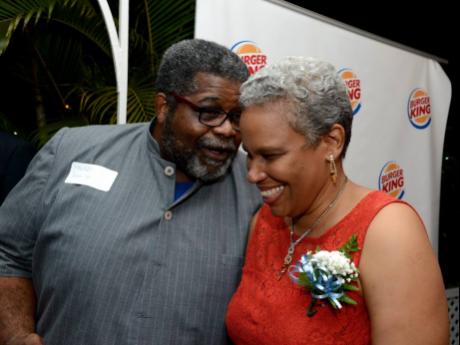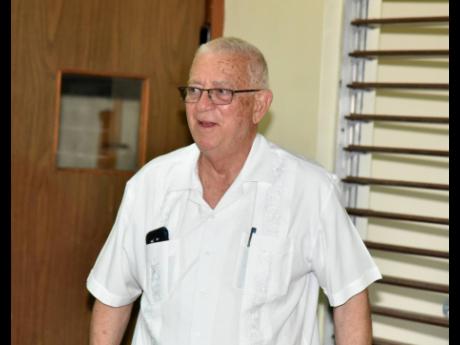EEC demands consultation on Sixth-Form Pathways Programme
AS TIME winds down for the start of the Sixth-Form Pathways Programme in secondary schools, educators with the Ecumenical Education Committee (EEC) are insisting that the Government consult with all churches and trusts before implementing the policy.
The Sixth-Form Pathways Programme is part of the Ministry of Education and Youth’s implementation of a seven-year high-school programme. It will now allow for students who completed grade 11 to pursue a two-year course of study with alternative opportunities.
But with just about six weeks for the start of the upcoming academic year, members of churches and trusts schools, which operate the majority of the island’s top-performing secondary-level schools, are challenged to make space for the students, or help them to find community colleges and programmes of higher learning. They are concerned that they may be forced to foot the additional expenses that their schools will soon face as a result of the programme’s implementation.
At a forum about ‘The Future of Denominational and Trust Education in Jamaica’ on July 14 at St Michael’s College in St Andrew, EEC members argued that the nature of the partnership agreement between the churches/trusts and the State, embodied in the Education Act 1965 and Code of Regulations 1980, mandates that both sides show due respect for each other and work together to achieve common goals.
But they argued that the way the Sixth-Form Pathways concept was implemented, and how some others have been approached, is not consistent with the mutual respect and consultation required for partnership.
Ronald Thwaites, former education minister and host of the forum, told The Gleaner last Thursday that based on a meeting with principals last Wednesday, there was an agreement that the regular sixth-form programme should continue as they were, with the application of the usual fees.
“The owners of the schools are concerned that they’re being taken for granted. These government-aided schools, which are owned by churches and trusts, and common courtesy as well as any hope for efficiency, comes with demand and proper consultation beforehand, that is why the Ecumenical Education Commission went before the parliamentary committee and indeed has spoken to the minister, requesting that such oversight, which is really contemptuous, not repeat itself,” Thwaites said.
“Despite the fact that the Government says they are going to abide by Patterson (report), they have issued a circular indicating that the same old position that there is no auxiliary fees, and that any contribution is entirely voluntarily,” he added.
“Most of the schools are running into serious debt because they cannot manage on the Government’s subvention alone. The cost of a high school education now is, if you wanted an average, somewhere in the region of $80,000 after salaries and such. Government is contributing $17,000; $17,000 cannot pay an $80,000 bill,” he said.
One of the most vocals persons on this topic at the forum was Margaret Campbell, principal of St George’s College, who believes that it is not too late for consultation to take place between the Ministry of Education and Youth and the churches and trust school owners.
“That [the Sixth-Form Pathways Programme] is a major shift in the operations of the schools, and so to make that shift without the partners in education, the churches and trusts, I think is wrong. The Sixth-Form Pathways Programme, I had some hesitation about it. I think it should be delayed, especially for the church and trust schools, to allow that kind of consultation,” Campbell told The Gleaner.
She insisted that the Sixth-Form Pathways Programme will affect the sixth-form fees and the character of some of the sixth-form programmes.
“For example, at St George’s College, we have girls coming from other schools into our sixth form, so the fee structure at the sixth form currently, is that the sixth forms are seen as being operated by the church and trust schools, and so the fees charged there are also used to help with the rest of the school’s operations. The ministry’s plan is to, again, make fees at the sixth-form level non-mandatory, so you don’t have to pay it, it’s a contribution, and that contribution would be the same as the rest of the school, which I think it’s about $17,000 per student, so that’s a significant drop in financial support for the schools, so it’s going to impact our operations,” she explained.
The EEC is to host another forum on August 9 to examine the funding of education in Jamaica.


